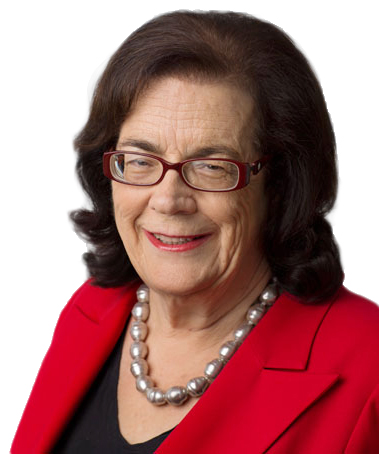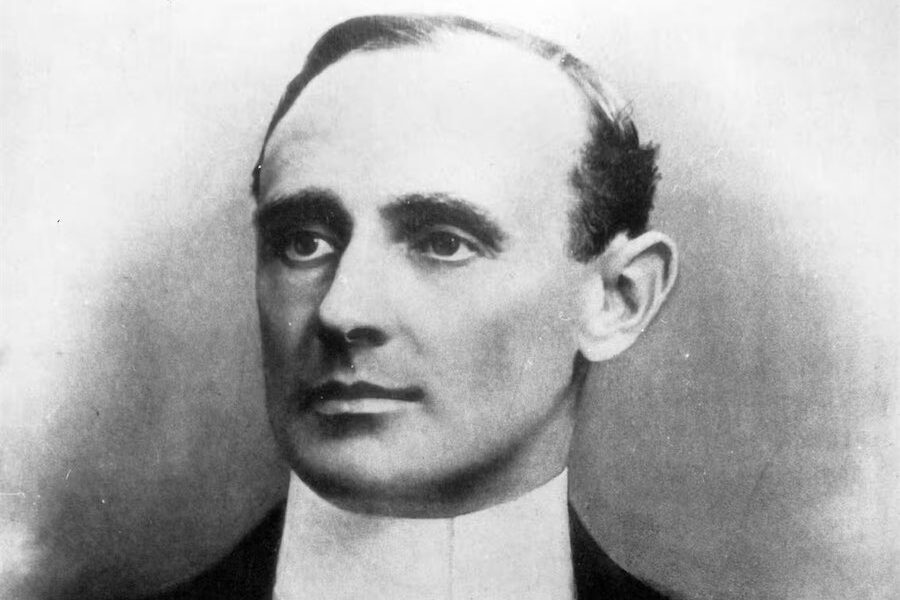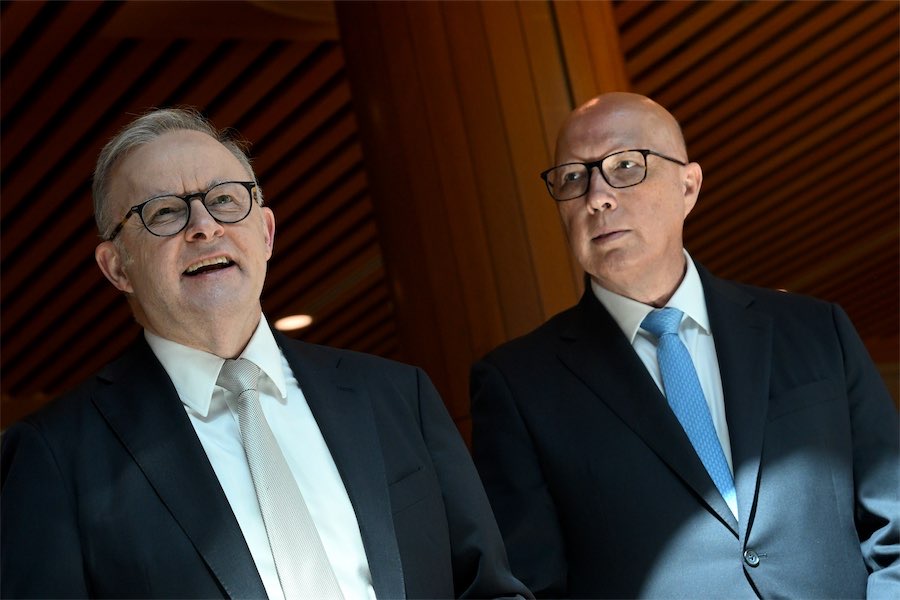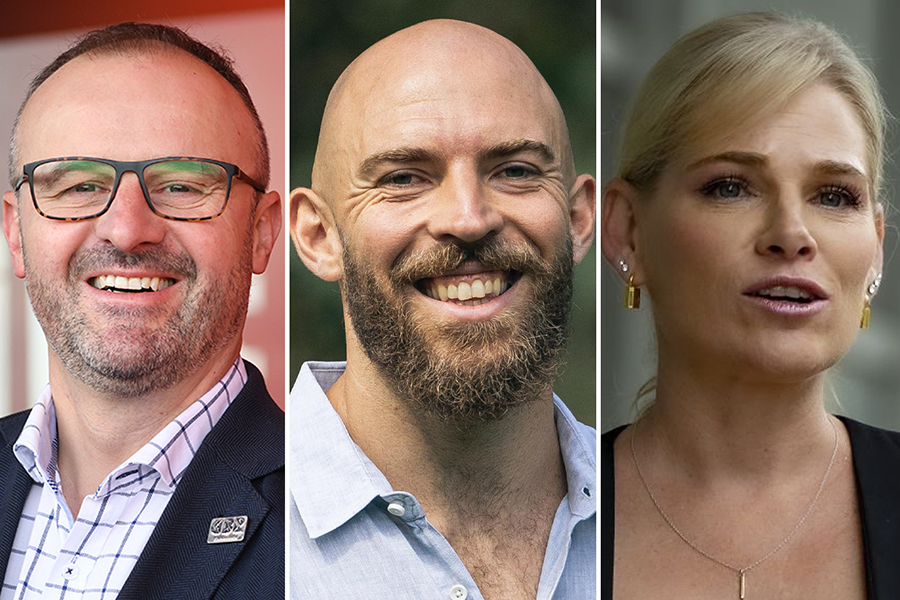Political columnist MICHELLE GRATTAN explains why Peter Dutton’s talking up nuclear replacements for coal-fired generators.
Sometimes it’s hard to decide whether Peter Dutton is a gambler at heart or ultra cautious.

On the policy front, the Opposition Leader is overseeing the development of a radical plan for Australia to use nuclear power in its energy transition. But in reshuffling his frontbench team on Tuesday, Dutton took a very careful path.
In its substance the nuclear policy, expected to be released before the budget, is based on a premise that this route is needed if Australia is to reach net zero emissions by 2050.
The latest polling shows Australians’ attitudes to nuclear power are becoming more favourable.
A Newspoll published last week found 55 per cent approved when asked their attitude to building “several small modular nuclear reactors […] to produce zero-emissions energy on the sites of existing coal-fired power stations once they are retired.” Among those aged 18-34, approval was 65 per cent.
In the Essential poll, in 2019 support for Australia developing nuclear power plants was 39 per cent; last October it was 50 per cent.
Nevertheless, given most experts insist nuclear wouldn’t be cost effective in any realistic timeframe, and scare campaigns are easy to run, why would Dutton go out on this shaky limb?
One theory is he’s seeking to bridge the gulf between, on the one hand, the resistance by Nationals (or many among them) to transmission lines and wind farms and, on the other hand, the moderate Liberals, who are totally committed to the 2050 target.
Pragmatically, looking at the politics, there is a lot of opposition in regional areas to the transmission network. How harvesting that discontent would weigh against the uncertainty, even alarmism that could be whipped up is another matter.
Despite the movement in public opinion, Labor can be expected to hold firm to its complete dismissal of the nuclear option. Apart from anything else, this is a red line for the Labor rank and file.
Dutton said on Tuesday the nuclear proposal was “a way of transitioning out of coal and into zero emissions technology.
“We’ve said that we’re interested in looking at sites where you’ve got an end-of-life coal-fired generation asset. So that means that you can use the existing distribution network.”
While Dutton isn’t shying away from a big fight on nuclear, when it comes to his team, he has studiously avoided any boat-rocking.
He had two vacancies: shadow assistant treasurer, left by Stuart Robert, and shadow cabinet secretary, previously held by Marise Payne, who also quit parliament.
Luke Howarth, who like Robert is a Queenslander, has been promoted to shadow assistant treasurer. Previously he had defence industry and defence personnel.
Senator James Paterson, from Victoria, becomes shadow cabinet secretary, in addition to his existing responsibility as home affairs spokesman. Dutton described this as “a critical role” in the Coalition’s shaping of its policy agenda.
With an eye to the cost of living and his strategy of targeting outer suburbia, Dutton has brought the MP for the marginal Sydney seat of Lindsay, Melissa McIntosh, previously an assistant shadow minister, into the shadow ministry. She’ll be shadow minister for energy affordability and for Western Sydney. The elevation should help in a preselection battle she faces.
“Western Sydney is an economic powerhouse, but it’s a region that the Albanese government has ignored,” Dutton said, announcing his reshuffle.
With the opposition preparing its housing policy, Andrew Bragg moves from the backbench to shadow assistant minister for home ownership, the issue du jour.
Among other limited changes, South Australian backbencher James Stevens’ appointment as shadow assistant minister for government waste reduction signals the Coalition is on the hunt for cuts. The public service will be alert and alarmed. Senator Paul Scarr becomes shadow assistant minister for multicultural engagement, increasing the opposition’s attention on this area at a challenging time for community harmony.
Meanwhile, the Liberals are saddling up for another by-election, with a Monday preselection ballot choosing Simon Kennedy, a former McKinsey consultant, as the candidate for Cook, vacated by Scott Morrison.
Cook is a safe Liberal seat and Labor is highly unlikely to contest it.
Kennedy ran unsuccessfully in Bennelong at the election. The criticism of his endorsement for Cook was immediate and predictable: the Liberals need more women in the parliament, and here they’ve chosen a man. Kennedy, who had an overwhelming vote, beat two other men and a woman.
While Liberals had to defend their position in the gender wars, Anthony Albanese, celebrating Jodie Belyea’s win in the Dunkley by-election, is able to crow that his caucus has a majority of females.![]()
Michelle Grattan, Professorial Fellow, University of Canberra. Republished from The Conversation.
Who can be trusted?
In a world of spin and confusion, there’s never been a more important time to support independent journalism in Canberra.
If you trust our work online and want to enforce the power of independent voices, I invite you to make a small contribution.
Every dollar of support is invested back into our journalism to help keep citynews.com.au strong and free.
Thank you,
Ian Meikle, editor




Leave a Reply